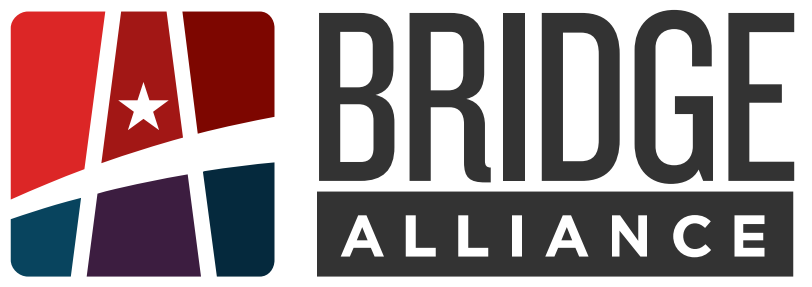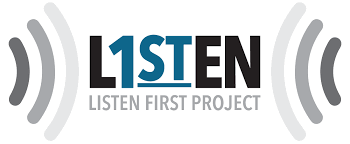Collaborative Problem-Solving:
A Path to Wise and Durable Solutions
Collaborative Problem-Solving: A Path to Wise and Durable Solutions
workshop Resources
workshop Resources
Thank you for connecting with us at the 2024 Council of Foundations Conference!
Workshop-Specific Resources
ADDITIONAL RESOURCES
VIDEOS
1
Engaging Differences: A video series by the National Institute for Civil Discourse.
2
The Moral Roots of Liberals and Conservatives: Psychologist Jonathan Haidt studies the five moral values that form the basis of our political choices, whether we’re left, right or center. In this eye-opening talk, he pinpoints the moral values that liberals and conservatives tend to honor most.
3
3 Ways to Lead Tough, Unavoidable Conversations: Author and mediator Adar Cohen, Ph.D, provides guidance from his own experience on how to lead difficult conversations in this 16 minute TEDx talk.
PODCASTS
1
The Arthur Brooks Show digs into the art of disagreement and the power of love with Arthur Brooks, Harvard social science professor, former president of the American Enterprise Institute, and expert on disagreeing well.
2
Common Ground Committee inspires and motivates the public to find common ground and reduce incivility and polarization by demonstrating how influential people of opposing views can unexpectedly find agreement without compromising core values. Common Ground Committee has many great podcasts of discussions with these influential people, including a handful from some of Convergence’s project participants.
3
This Is Civity podcasts feature people who are building relationships to dismantle inequities and strengthen communities grounded in respect and empathy.
ARTICLES
1
A Better Way to Look at Most Every Political Issue: The Atlantic political staff writer Conor Friedersdorf argues that Americans would be less alienated from one another and solve problems more easily if they framed issues in terms of “equilibriums and limits” instead of “binaries and spectrums.”
2
The Art of Getting Opponents to “We”: This New York Times piece discusses how Convergence Center for Policy Resolution uses collaborative problem solving to develop creative solutions to divisive national policy issues.
3
Complicating the Narratives: In conflict complexity collapses. One key to getting out of conflict – complexify the narrative.
4
Bridging Differences Playbook: This Greater Good Science Center initiative studies the psychology, sociology, and neuroscience of well-being, and teaches skills that foster a thriving, resilient, and compassionate society. They have an entire program dedicated to bridging differences.
5
Our Culture of Contempt: In this New York Times article, Former Executive Director of the American Enterprise Institute Arthur Brooks says the problem in America today is not incivility or intolerance. It’s something far worse. It is a Culture of Contempt.
6
How to Have a Difficult Conversation: In this article in Psyche, mediator and author Adar Cohen explains that understanding that, although other results are possible, the most realistic expectation from a constructive conversation among those in conflict is a mutual appreciation for one another’s needs, fears, and hopes.
BOOKS
1
From Conflict to Convergence: Coming Together to Solve Tough Problems by Rob Fersh and Mariah Levison
From Conflict to Convergence captures decades of wisdom and practice in the consensus-building field and delivers an incisive, hands-on guide to de-escalating conflict and constructively engaging with others to find better solutions to problems. The book also speaks to concerned citizens looking for concrete pathways to lessen troubling divides to find, or help others find, common ground with people with differing views and perspectives in their workplaces, their communities, and society at large.
2
Difficult Conversations by Stone, Patton, and Heen
Difficult Conversations provides a step-by-step approach to having those tough conversations with less stress and more success. You’ll learn how to decipher the underlying structure of every difficult conversation, start a conversation without defensiveness, listen for the meaning of what is not said, stay balanced in the face of attacks and accusations, and move from emotion to productive problem-solving.
3
Love Your Enemies: How Decent People Can Save America from the Culture of Contempt by Arthur Brooks
Author and social scientist Arthur C. Brooks shows that abuse and outrage are not the right formula for lasting success. Brooks blends cutting-edge behavioral research, ancient wisdom, and a decade of experience leading one of America’s top policy think tanks in a work that offers a better way to lead based on bridging divides and mending relationships.
4
Getting to Yes by Fisher and Ury
Getting to Yes offers a proven, step-by-step strategy for coming to mutually acceptable agreements in every sort of conflict. Thoroughly updated and revised, it offers readers a straightforward, universally applicable method for negotiating personal and professional disputes without getting angry — or getting taken.
5
High Conflict by Amanda Ripley
In the tradition of bestselling explainers like The Tipping Point, this book is based on cutting edge science that breaks down the idea of extreme conflict — the kind that paralyzes people and places — and then shows how to escape it.
6
Prius or Pick-Up: How the Answer to Four Simple Questions Explain America’s Great Divide by Hetherington and Weiler
Even our smallest choices speak volumes about us — especially when it comes to our personalities and our politics. Liberals and conservatives seem to occupy different worlds because we have fundamentally different worldviews: systems of values that can be quickly diagnosed with a handful of simple parenting questions, but which shape our lives and decisions in the most elemental ways. Drawing on groundbreaking original research, Prius or Pickup? is an incisive, illuminating study of the fracturing of the American mind.
7
The Righteous Mind: Why Good People Are Divided by Politics and Religion by Jonathan Haidt
Jonathan Haidt shows how moral judgments arise not from reason but from gut feelings. He shows why liberals, conservatives, and libertarians have such different intuitions about right and wrong, and he shows why each side is actually right about many of its central concerns. In this subtle yet accessible book, Haidt gives you the key to understanding the miracle of human cooperation, as well as the curse of our eternal divisions and conflicts. If you’re ready to trade in anger for understanding, read The Righteous Mind.
8
Facilitator’s Guide to Participatory Decision-Making
This book supports groups to do their best thinking. It demonstrates that meetings can be much more than merely an occasion for solving a problem or creating a plan. Every well-facilitated meeting is also an opportunity to stretch and develop the perspectives of the individual members, thereby building the strength and capacity of the group as a whole. The various editions of this book are embraced by business and community leaders and consulting professionals around the world.
TAKE ACTION
1
Attend an event! Citizen Connect connects citizens to events and organizations that help Americans find ways to heal our political divides and strengthen our democracy.
2
Join a conversation! Common Ground Conversations by Common Ground Committee invite you to learn about both sides of an issue by exploring multimedia content from high-profile guests of diverse political backgrounds. Get informed on today’s most pressing issues – on your own, or with a group – then use what you’ve learned to help bring light and not heat to our nation’s civil discourse.
3
Take part in Braver Angels! Braver Angels brings Americans together to bridge the partisan divide and strengthen our democratic republic. Among their many tools are excellent red-blue workshops, bridging skill trainings, book clubs, red-blue alliances for action, and more.
4
Explore how to better connect with others! Living Room Conversations is a conversational model developed by dialogue experts in order to facilitate connection between people despite their differences, and identify areas of common ground and shared understanding. Within this model, they have developed over 100 free conversation guides on all sorts of topics that can otherwise be tense to talk about with friends, strangers, and even loved ones of differing backgrounds and political persuasions. You can join an existing conversation or host one of your own.
5
Chat with a stranger! One Small Step pairs strangers with differing beliefs for a 50-minute conversation about their lives, rather than politics. The idea behind this is to illuminate the humanity in us all via personal storytelling as a response to the growing divisions in our country that pose a threat to our democracy.
ORGANIZATIONS
The Bridge Alliance is a coalition of approximately 100 organizations working together to promote healthy self-governance in our democratic republic. Bridge Alliance member organizations span the ideological spectrum, but are unified to work efficiently, outside arbitrarily defined political lines.
Listen First Coalition: 500 organizations bringing Americans together across divides to listen and understand each other, to find common ground, and to make bridge-building and collaboration norms.



